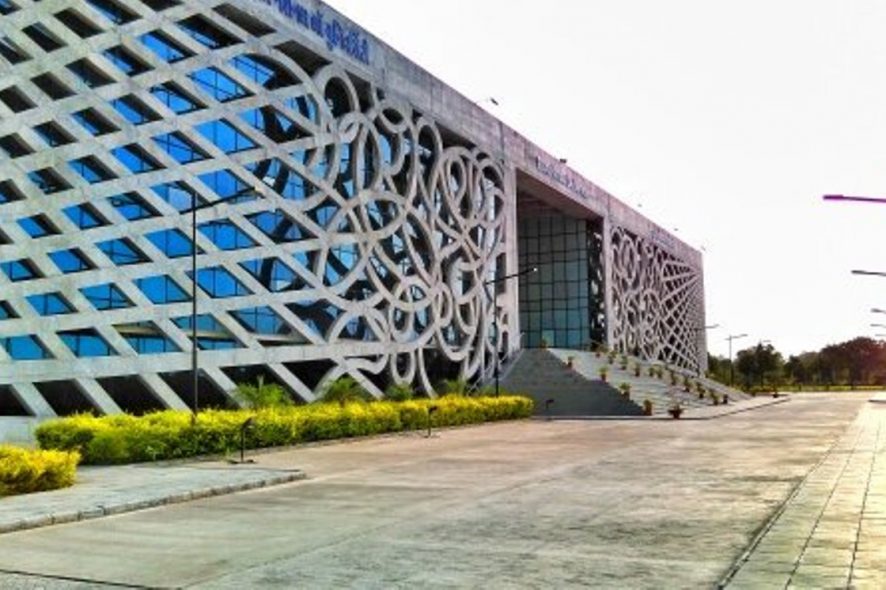The GNLU Student Research Development Council (SRDC), established in 2014, is GNLU’s very own research platform which encourages students, professionals and experts in the field of Law to create and promote a conducive research environment to foster discussion on contemporary research questions in law and its allied disciplines. One of the many diverse Student Research Groups (SRGs) of the SRDC is the Alternate Dispute Resolution Group (ADR Group).
About the SRDC ADR Magazine
The SRDC Magazine is a quarterly publication which invites submissions from experts, working professionals, academics and students in the field of Alternate Dispute Resolution.The ADR Student Research Group, launched its first edition of the ADR Magazine in May, 2020. This flagship publication of the ADR SRG witnessed several articles pertaining to the recent developments, judicial decisions and practices of ADR in Indian and several foreign jurisdictions. The SRG collaborated with several experts and practitioners in the field of ADR who supervised the process of the publication, thereby adding to the scholastic appeal of the Magazine.
Call for Papers
With the aim to promote the interdisciplinary understanding and the study of new ADR dynamics, the GNLU SRDC invites students to submit their articles for the 2nd Edition of ‘The GNLU SRDC ADR Magazine’. Interested Students are to adhere to the following themes and submission guidelines:
Issues
Authors may make submissions on topics pertaining to any one of the following:
- Domestic Arbitration
- International Commercial Arbitration
- Investment Arbitration
- Negotiation
- Mediation
- Conciliation
Please note that the above list is not exhaustive and authors are free to write on issues falling broadly within the field of Alternative Dispute Resolution.
The magazine permits Articles, Case Comments, Legislative Comments and Book Reviews falling within the scope of Alternative Dispute Resolution.
Submission & Formatting Guidelines
- Co-Authorship: Co-authorship is permissible only up to a maximum of two authors.
- Word Limit: 2000-2500 words (exclusive of citations).
- Body: The body of the manuscript should be in Times New Roman, Font Size 12 and line spacing 1.5.
- Footnotes: The footnotes should be in Times New Roman, Font Size 10 and line spacing 1.
- The citations must conform to the OSCOLA style of citations, 4th edition.
- No hyperlinks are allowed.
- The piece should not contain any reference to the author, including their names and institutional affiliations.
- Any failure to adhere to submission guidelines may result in rejection of the submission.
Cover Letter: The submission should be accompanied by a Cover Letter, within the manuscript attached and must contain the following details:
- Name of the Author(s)
- Contact Details- Address and Mobile Number
- Name and Address of the Institution of the Author(s)
- Academic Qualifications/Affiliations of the Author(s)
- Title of the Manuscript
Mode of Submission
- The Magazine accepts submissions on a rolling basis. Should the submission be made after the editorial process of an issue, the articles shall be considered for subsequent issues.
The submissions can be made via email to the SRDC ADR editorial team on the following email ID: srdcadr[at]gnlu.ac.in - The email should contain the manuscript in .doc or .docx format accompanied by the cover letter as per the aforementioned specification.
Copyright and editorial policy
- Submissions made to the SRDC are on an exclusive basis.
- The submissions must not have been previously published or submitted for publication elsewhere. The contribution presented to and accepted for publication along with the copyrights therein shall be the intellectual property of the SRDC and vests with it.
- SRDC strives to promote originality and commits itself to strict requirements of integrity. Plagiarized works shall be ineligible for publication. The author(s) are to cite their sources and acknowledge the sources for the content which is not original. SRDC ADR editorial team reserves its right to reject and/or discontinue further collaboration on non-fulfilment of the academic integrity criterion.
Contact Details
For any further queries, you may mail us at srdc[at]gnlu.ac.in or contact Rahul Kanoujia, Editor-in-Chief (+918451084791) or Raghav Bhargava, Senior Editor (+919838164641)
The link for the first issue is here.
The link for the LinkedIn page is here.






